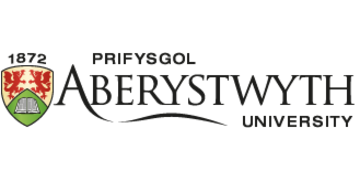Aberystwyth University: Fight against malaria boosted by Aberystwyth University drone mapping
Aberystwyth University researchers are supporting authorities in Zanzibar with drone and smartphone technology to help find pools of water that mosquitoes use to breed.
The project is funded by the Innovative Vector Control Consortium which was established in 2005 with an initial $50 million grant from the Bill & Melinda Gates Foundation.
While a number of studies have looked at the technologies’ potential in tackling malaria, this is the first time it has been used within a widespread intervention programme.
Zanzibar is a group of islands off the coast of Tanzania in East Africa. Both it and mainland Tanzania have fought a long, well documented battle with malaria.
Globally, the disease infects over 200 million people annually and is responsible for killing more than 400,000 people each year.
Aberystwyth University is collaborating with the Zanzibar Malaria Elimination Programme to fly drones over known malaria hot spots.
Public health authorities need to be able to locate and map mosquito breeding sites in malaria hotspots to target elimination efforts.
For this approach to be successful, tools like drones are needed for mapping the breeding sites.
Once the water breeding sites are identified in the drone images, the authorities can use the data within a bespoke smartphone app to precisely locate and treat mosquito habitats, and to track their progress and coverage.
Speaking about the use of the mapping technology in the area, Dr Andy Hardy from the Department of Geography and Earth Sciences at Aberystwyth University, said:
“There has already been great success in reducing the number of malaria cases in sub-Saharan Africa thanks to interventions like bed nets and indoor residual sprays. It’s been a real success story, leading to a notable decrease in the disease’s prevalence. Some areas of Zanzibar have seen prevalence levels drop from 40% of the population having malaria to less than 1%.
“Now public health managers are looking to complement the existing use of bed nets and indoor residual sprays with outdoor based solutions. In effect, we’re taking the battle to mosquitoes.
“Drones are a crucial part of the armoury. One of the main challenges to disease managers is finding small water bodies that mosquitoes use to breed. This is where drones come in – for the first time, drone imagery can be routinely captured by the malaria elimination programme in Zanzibar, to create precise and accurate maps of potential breeding sites.”
“We are excited to see how our technology-led approach can improve malaria elimination operations in Zanzibar. In 20 minutes, a single drone is able to survey a 30-hectare rice paddy. This imagery can be processed and analysed on the same afternoon to locate and map potential breeding sites. This has proved to be highly accurate and efficient.”
Along with Aberystwyth University, the partnership includes the Zanzibar Malaria Elimination Programme, the Tanzanian Flying Labs, Mosquito Consulting, Zzapp Malaria, the Liverpool School of Tropical Medicine and the London School of Hygiene and Tropical Medicine.
The international team is now incorporating the drone imagery and smartphone technology into a spatial intelligence system to help guide efforts to eradicate the disease. The smartphone technology developed by Zzapp Malaria won a IBM Watson AI XPRIZE.
Dr Silas Majambere, the Director of Scientific Operations at the Pan African Mosquito Control Association, added:
“As we strive towards the ultimate goal of malaria elimination we look to new techniques and technologies to inform intervention strategies. For the first time, Dr Hardy’s mapping work is helping to provide critical information to enable a broad scale assessment of where permanent and semi-permanent water bodies exist – key targets for malarial mosquito control. I am currently working closely with national malaria control programmes in many countries in Africa, and I have proposed that Dr Hardy’s wetland mapping approaches are used to plan and guide national-level activities.
“In addition, Dr Hardy’s work has showcased the benefits of using drones for providing vital information for malaria control field teams – it has a very real potential for being applied in other national malaria control programmes. As such, I have proposed the use of Dr Hardy’s approach in other national malaria campaigns in Africa, including Rwanda, Tanzania, Uganda, and Ghana.
David Malone, Senior Programme Officer, at the Bill & Melinda Gates Foundation commented:
“This collaboration between Aberystwyth University and the Zanzibar Malaria Elimination Programme, shows that drone and smartphone technology can provide vital data for controlling malarial mosquitoes in a relatively low-cost manner. Moreover, this work demonstrates that national malaria control programmes, like that in Zanzibar, can take ownership of this kind of technology, and therefore represents an important investment in the battle to eliminate malaria.”

